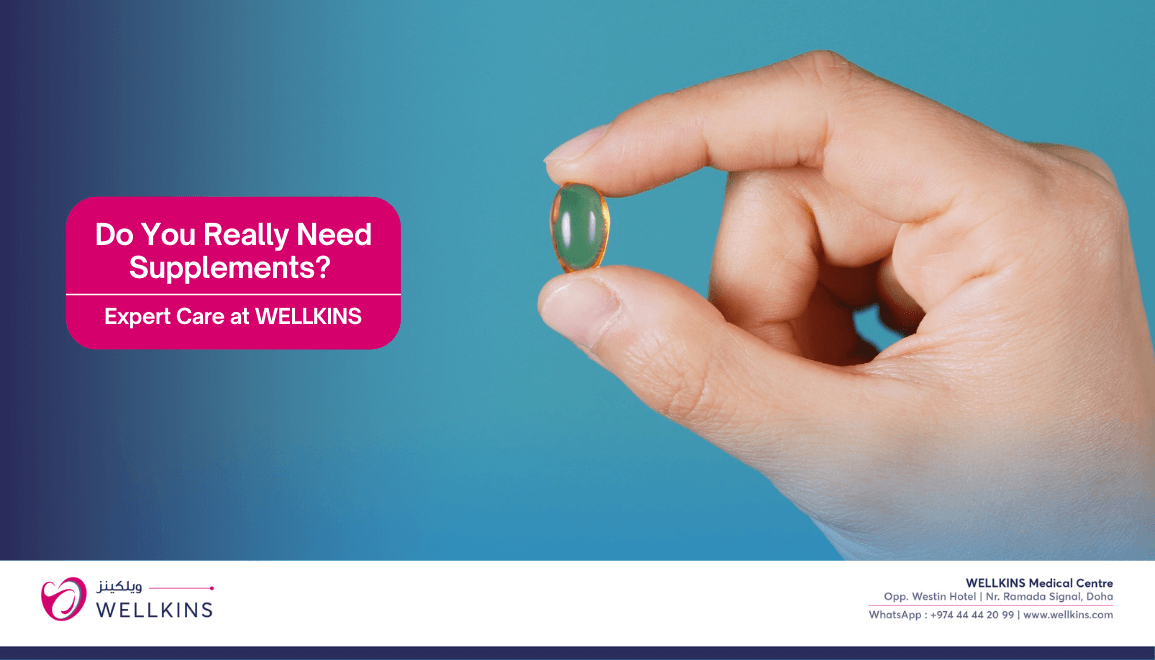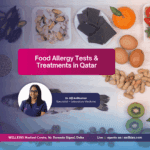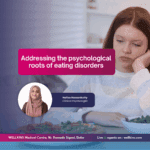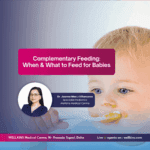Author: Dr. Ayisha Anwar, (General Practitioner – Wellkins Medical Centre)
The world of vitamin and mineral supplements can be overwhelming. From glowing skin to boosting immunity, countless products promise a quick fix, often with enticing marketing claims. But what do you really need to thrive? What’s merely marketing hype or even a waste of money? And most importantly, can these seemingly harmless supplements interfere with your vital prescription medications or existing health conditions?
At Wellkins Medical Centre, we believe in informed health choices. Our general practitioners are here to demystify the supplement landscape, helping you understand what genuinely supports your unique health needs and what might be unnecessary or even risky.
“My advice is always the ‘Food First’ philosophy, and if a supplement is deemed necessary (perhaps for a confirmed deficiency like Vitamin D, which is common here), it should always be prescribed or approved by a medical professional. Please, disclose every single supplement you are taking or considering to your doctor during consultations. This transparency allows us to build a truly safe and effective health plan tailored to your unique needs, ensuring your supplements complement, rather than compromise, your health journey.”
Do You Really Need Supplements? The “Food First” Philosophy
For most healthy individuals who consistently consume a balanced, varied diet, the answer is often “no.” Your body is remarkably designed to absorb nutrients most effectively and synergistically from whole, unprocessed foods. A diet rich in fresh fruits, colorful vegetables, lean proteins, healthy fats and whole grains typically provides the vast majority of vitamins and minerals your body requires for optimal function. However, it’s crucial to acknowledge that certain circumstances, specific health conditions, or unique lifestyle choices can indeed create genuine nutritional gaps where targeted supplementation might be beneficial, or even essential. This is where personalized medical guidance becomes invaluable.
What You Might Need (Common Deficiencies & Special Circumstances)
While individual needs vary greatly based on age, diet, genetics and health status, some supplements are commonly recommended under specific conditions, often confirmed by a healthcare professional:
Vitamin D: Especially prevalent in regions with limited year-round sun exposure (like living indoors most of the day) or for individuals with darker skin tones. Vitamin D is absolutely crucial for robust bone health, a well functioning immune system and even mood regulation. Many residents in Qatar may experience insufficient levels due to lifestyle.
Iron: A common deficiency, particularly for menstruating women (due to blood loss), pregnant individuals (for fetal development) and those strictly adhering to vegetarian/vegan diets. Iron prevents anemia, which causes fatigue and weakness, and supports vital energy levels.
Vitamin B12: Primarily a concern for vegetarians, vegans and older adults, as it’s predominantly found in animal products and its absorption can decrease with age. B12 is vital for nerve function, cognitive health and red blood cell production.
Folic Acid (Folate): Critically important for women of childbearing age and throughout pregnancy to prevent severe neural tube defects in developing babies. Supplementation is often recommended pre-conception.
Calcium: Essential for individuals with low dairy intake, post menopausal women, or those at increased risk of osteoporosis. It works synergistically with Vitamin D for maximum bone health and density.
Omega-3 Fatty Acids: If your diet lacks regular servings of fatty fish (salmon, mackerel, sardines), these essential fats can support cardiovascular health, brain function and help reduce systemic inflammation throughout the body.
Multivitamin: Often recommended as a nutritional “safety net” for children with very restrictive diets, for elderly individuals whose nutrient absorption might be less efficient, or for those recovering from illness.
Probiotics: While not a vitamin, these beneficial bacteria can be helpful for gut health, especially after antibiotic use or for certain digestive issues.
Important: Never self-diagnose a deficiency or start high-dose supplements based on generalized advice. A simple, targeted blood test at Wellkins Medical Centre can accurately confirm if you truly need a specific supplement and help determine the appropriate dosage.
What You Probably Don’t Need (Often Over-Marketed and Ineffective)
Many popular supplements often offer little to no proven benefit to healthy individuals consuming a balanced diet, often representing a waste of money:
Mega-doses of most water-soluble vitamins: More isn’t always better. Your body typically excretes excess water-soluble vitamins (like Vitamin C or most B vitamins) in urine, meaning high doses are simply flushed away.
Excessive fat-soluble vitamins (A, D, E, K): Unlike water-soluble vitamins, these can accumulate in the body and become toxic at very high levels, leading to serious health problems.
“Immunity boosters” (e.g., continuous high-dose Vitamin C or Zinc daily): While these nutrients play roles in immunity, continuous high doses aren’t proven to prevent illness in healthy individuals and can sometimes have adverse effects. They are best used acutely under guidance.
Most “detox” supplements and cleanses: Your liver and kidneys are incredibly efficient and sophisticated detox organs. There is little scientific evidence that these expensive supplements provide any additional, medically significant benefit.
Biotin for hair/nails (unless clinically deficient): While widely marketed for beauty, there’s limited robust evidence for significant benefit in healthy individuals.
Generic “energy boosters”: Often rely on excessive caffeine or unproven herbal blends that may cause jitters, sleep disturbances, or interact with other medications.
The Crucial Alert: Supplement-Medication Interactions
This is arguably the most dangerous aspect of indiscriminate supplement use. Many seemingly harmless supplements can have potent pharmacological effects and interact significantly with prescription and even over-the-counter medications, altering their effectiveness or increasing severe side effects. This area requires extreme caution and professional guidance.
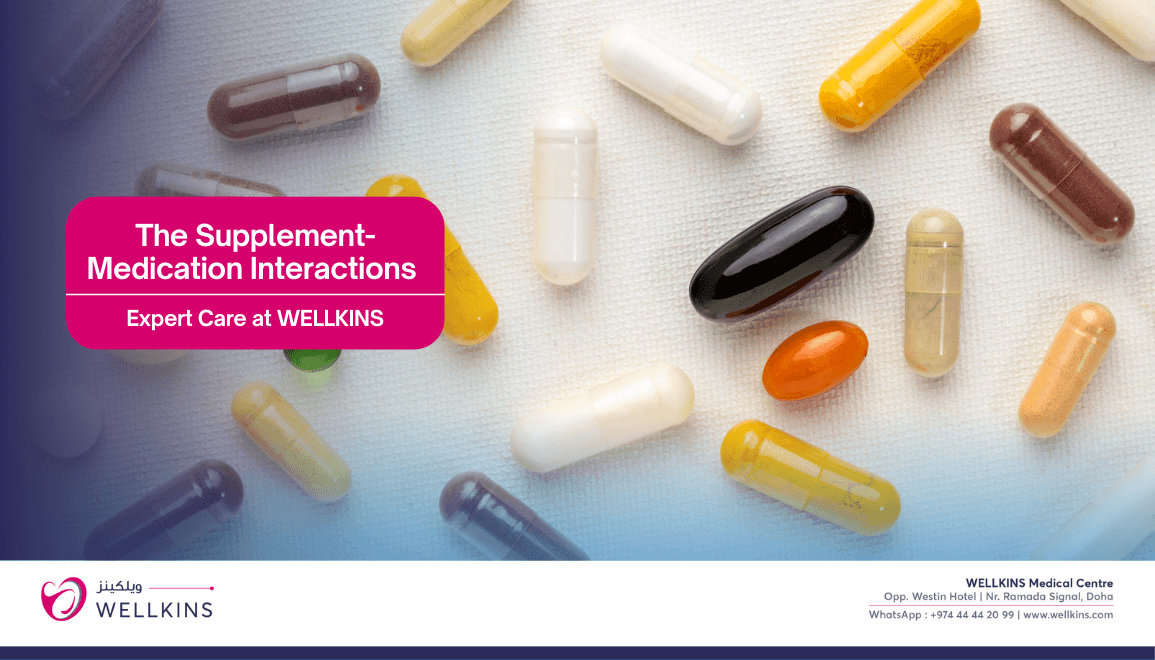
Common and Critical Interactions to Be Aware Of:
Blood Thinners (e.g., Warfarin, Aspirin, newer anticoagulants): Supplements like Vitamin K (reduces effect of Warfarin), high-dose Vitamin E, Ginko Biloba, Garlic, Ginger, Turmeric and Omega-3 fatty acids can all affect blood clotting, potentially increasing the risk of dangerous bleeding or reducing the effectiveness of your prescribed medication.
Thyroid Hormones (e.g., Levothyroxine for hypothyroidism): Calcium, Iron, Magnesium and Soy products can significantly interfere with the absorption of essential thyroid medication. They must be taken at least 4 hours apart from your thyroid pill.
Antidepressants and Mood Stabilizers: can cause severe interactions and leading to potentially life-threatening serotonin syndrome.
Diuretics (Water Pills for blood pressure/fluid retention): Certain herbal supplements or mineral supplements, especially those containing high doses of potassium, can interact with diuretics, leading to dangerous electrolyte imbalances.
Blood Pressure Medications: Supplements like Ginseng, Licorice Root, or high dose Calcium can affect blood pressure, potentially interfering with the efficacy of your prescribed medication.
Diabetes Medications: Some herbal supplements claim to lower blood sugar and can cause dangerously low blood sugar (hypoglycemia) if taken with prescribed diabetes medications.
Immuno-suppressants: Certain “immune-boosting” supplements can interfere with medications designed to suppress the immune system in transplant patients or those with autoimmune diseases.
Always disclose ALL supplements you are currently taking or considering to your doctor and pharmacist. This includes all vitamins, minerals, herbal remedies, protein powders and any over-the-counter concoctions. Your healthcare provider needs a complete picture of everything entering your body to ensure your safety.
Your Smart Supplement Strategy with Wellkins Medical Centre
Hold the “Food First” Approach: Prioritize a varied, balanced and nutrient-dense whole-food diet as the cornerstone of your health.
Identify Genuine Gaps: If you have dietary restrictions (vegan, allergies), a medical condition (malabsorption), or are in specific life stages (pregnancy, breastfeeding, elderly), discuss potential deficiencies with your doctor.
Test, Don’t Guess: Avoid guesswork. Get targeted blood tests at Wellkins Medical Centre to scientifically confirm any suspected vitamin or mineral deficiencies before starting supplementation.
Seek Doctor’s Approval: Always have an open conversation about any new supplement with your doctor or pharmacist, especially if you are on any prescription medication. They can accurately check for potential interactions, assess appropriate dosages and advise on reputable brands.
Quality and Purity Matter: If supplementation is advised, choose reputable brands with third-party testing certifications. This ensures the product’s purity, potency and that it contains what the label claims.

Your Personalized Health Plan Starts Here at Wellkins
At Wellkins Medical Centre, we are dedicated to providing evidence based, personalized guidance for every step of your health journey. Before reaching for that supplement bottle, or if you have any questions about your current regimen, talk to our general practitioners. We can help you create a complete plan that optimizes your diet, identifies genuine nutritional needs and most importantly, ensures any supplements you take work safely and effectively with your unique body and existing medications. Your well being is our priority.
To book an appointment at Wellkins Medical Centre: https://wellkins.com/visit



